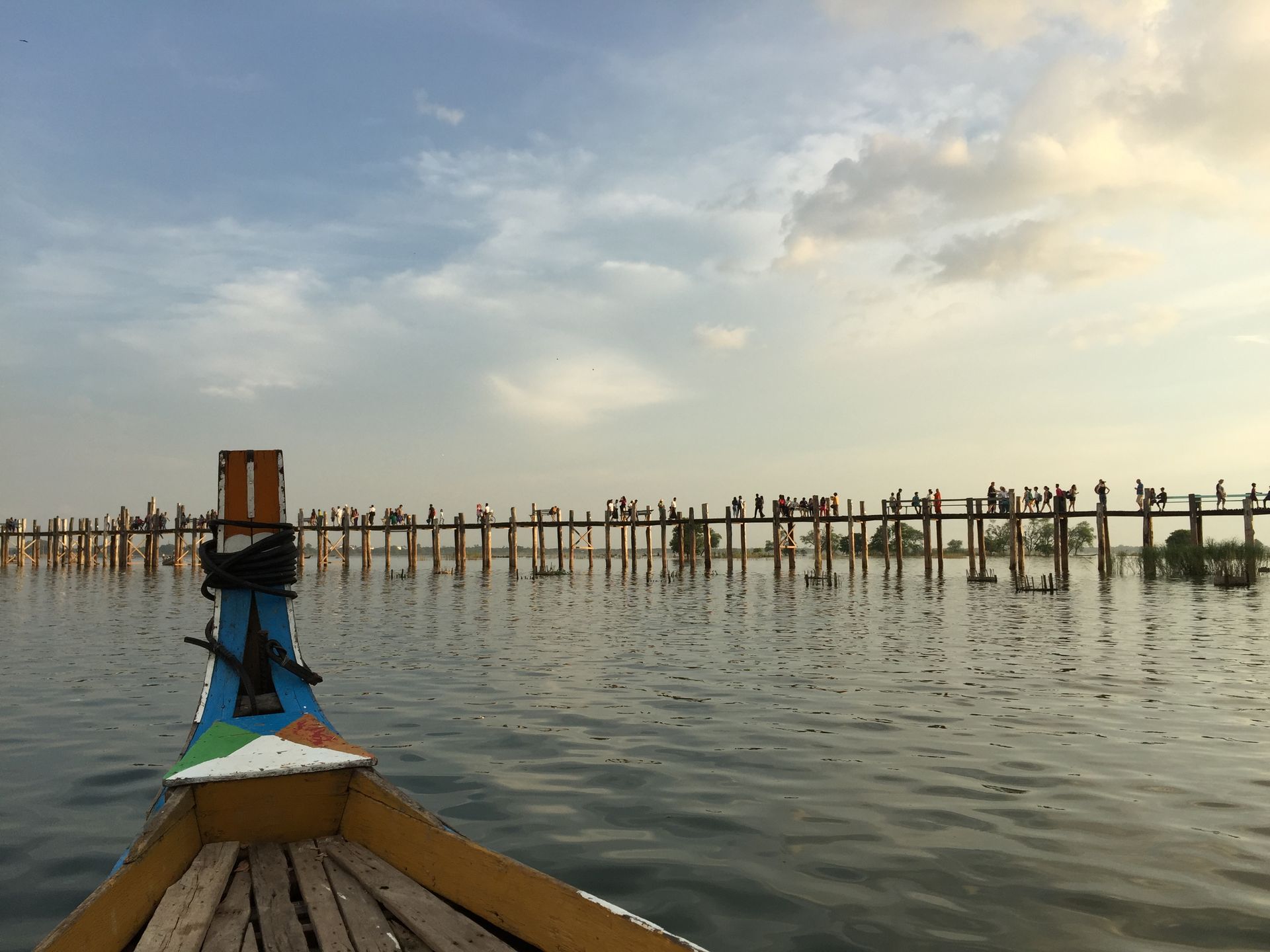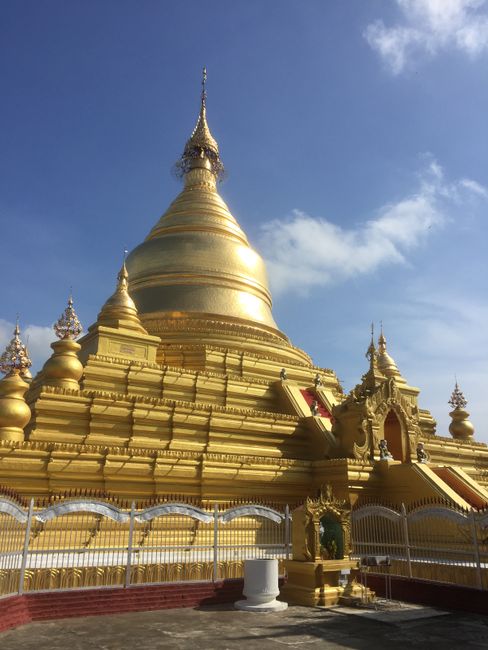
myanmarhighlights
vakantio.de/myanmarhighlights
Day 2 in Myanmar: Fat Buddhas and U-Bein Bridge
Uñt’ayata: 22.02.2018
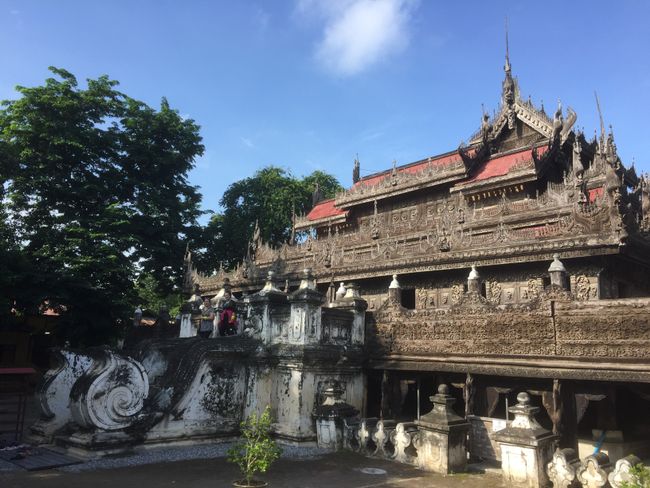
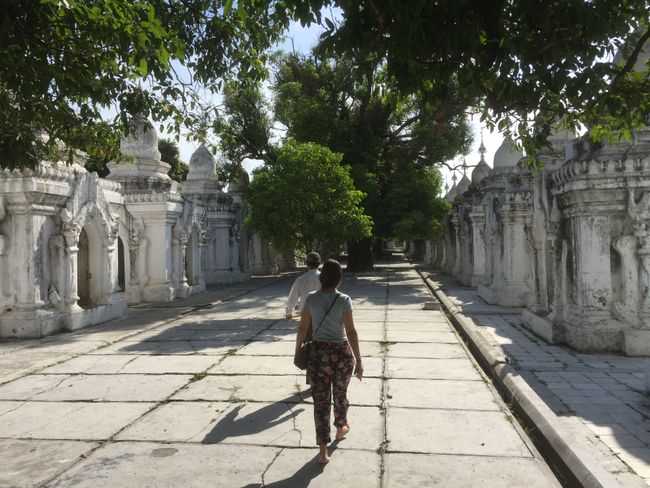
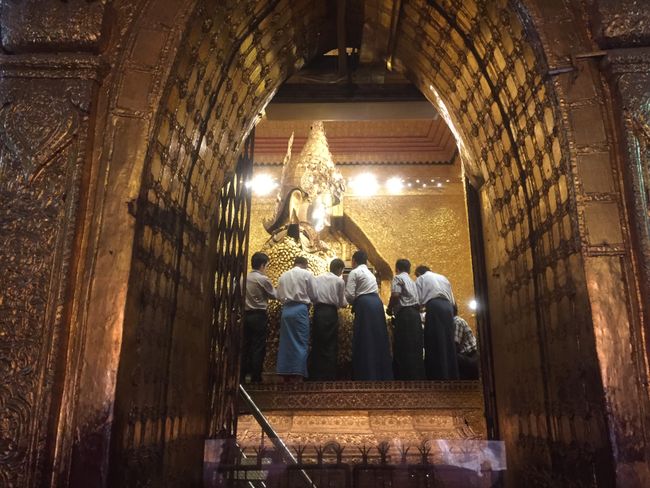
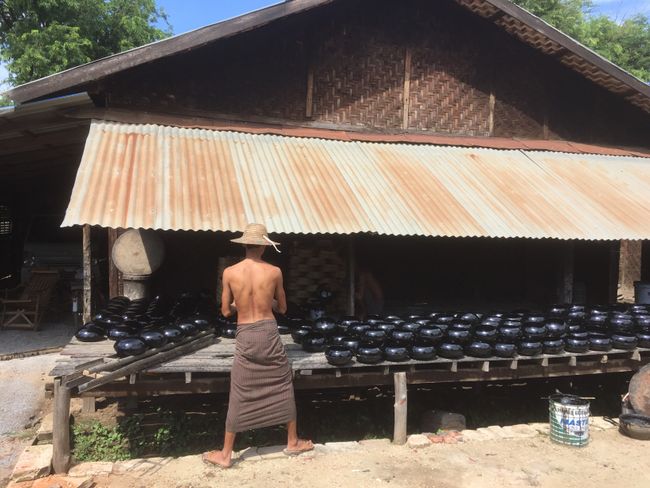
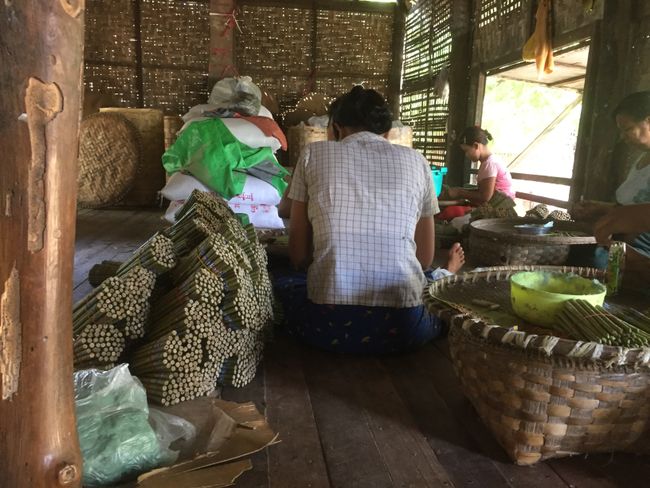
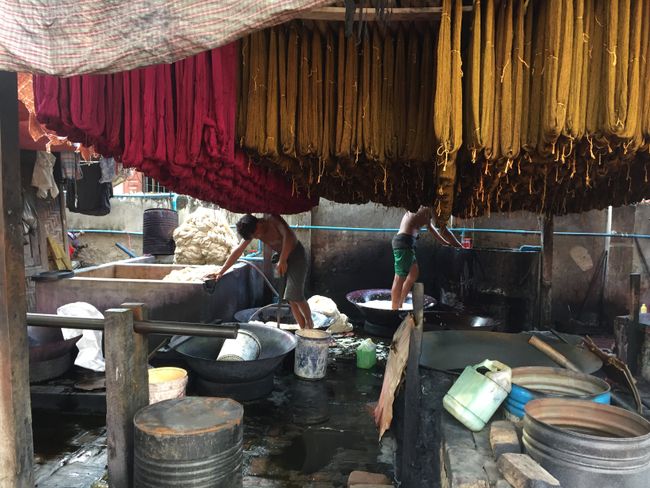
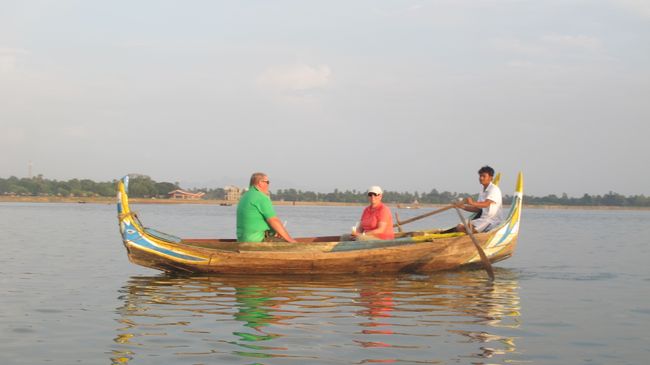
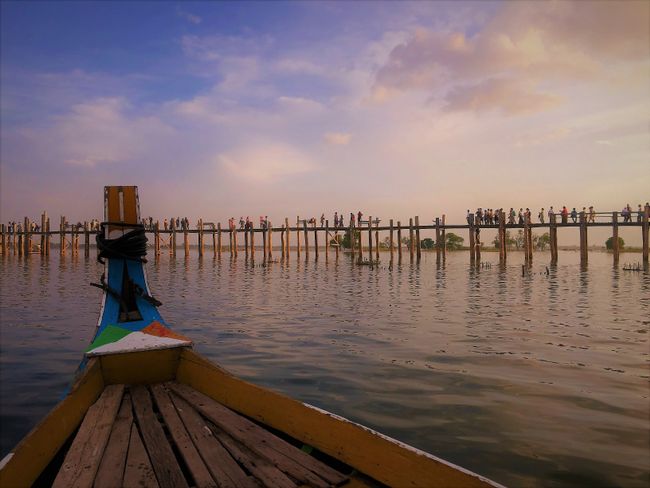
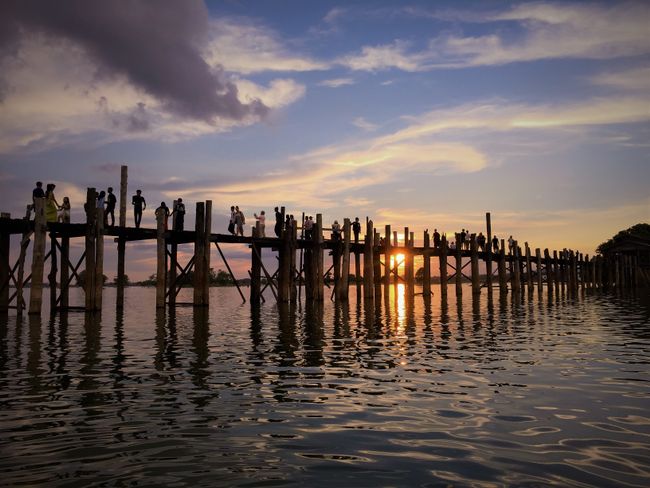
Morning: Highlights in Mandalay
After an Asian-inspired breakfast (noodles and fried rice), our exploration of Mandalay began. No reasonable blogger or travel guide writer would describe today's Mandalay as the 'Pearl of Burma.' However, this city offers a handful of attractions that remind us of Mandalay's mysterious and historic past. After visiting the Shwenandaw Monastery, the only remaining structure from the ancient royal era that was not destroyed during World War II, we continued to the Kuthodaw Pagoda.
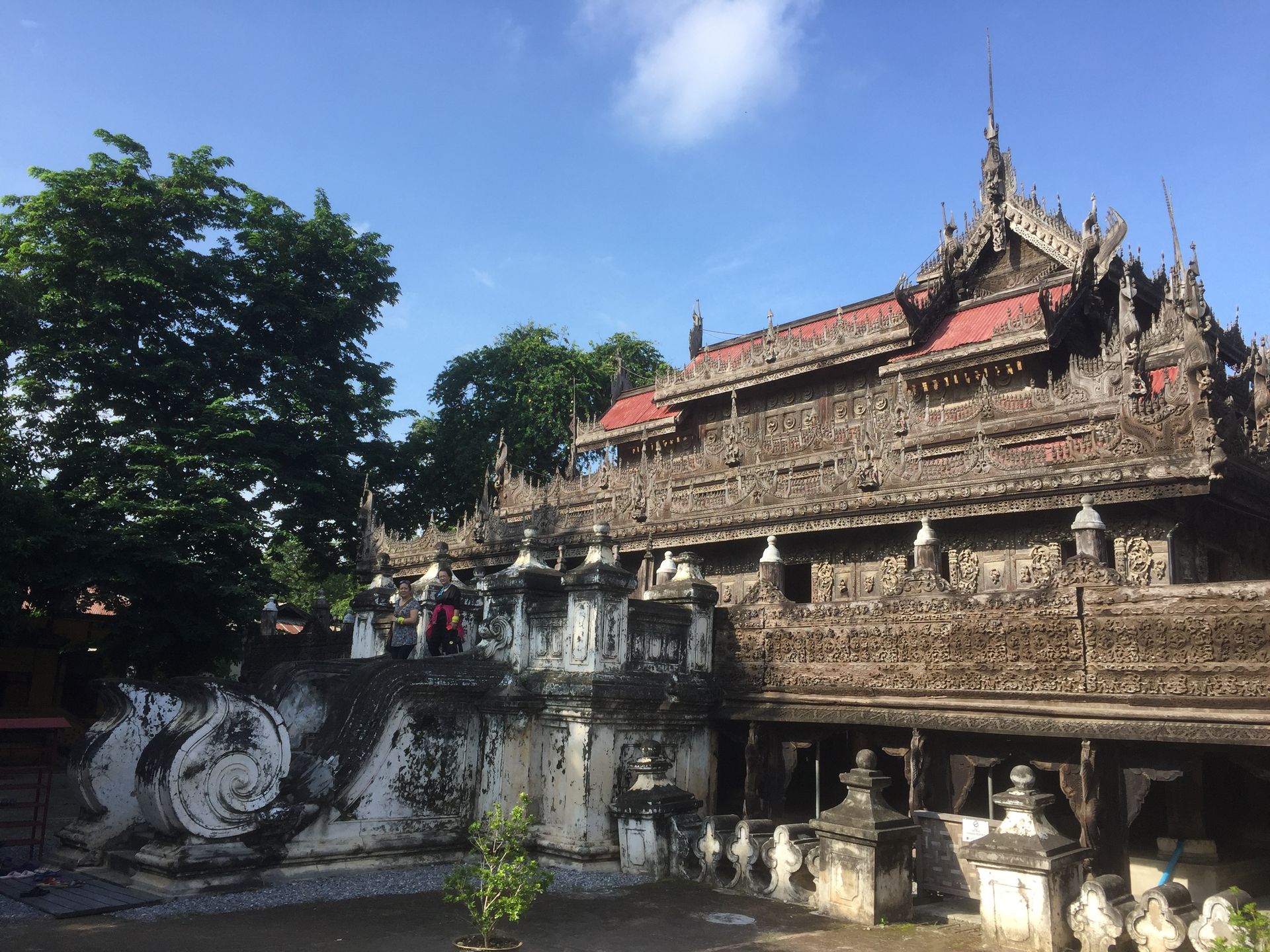
The completed pagoda in 1868 contains nothing less than the largest book in the world. If you're expecting a two-meter tall leather-bound book in a glass case, you're mistaken. The largest book in the world is nothing less than 729 small temples, each housing a white marble tablet. Each of these tablets contains a part of the Pali Canon, which recounts the life and teachings of Buddha.

We concluded our sightseeing morning with a visit to the Mahamuni Pagoda. This pagoda is the religious center of Mandalay and houses the Mahamuni statue, one of the most revered Buddha statues in all of Burma. We observed with great reverence as the devotees adorned the Buddha with gold leaf in a religious ceremony. This procedure, performed for years, has resulted in the uneven Buddha being covered in a 30 cm thick layer of gold leaf.

Afternoon: Bicycle tour and U-Bein Bridge
After lunch, we hopped on our bikes. A bike tour in the countryside of Mandalay is an excellent way to escape the hustle and bustle of the city. Equipped with two new bikes and a guide who had limited command of the English language, we embarked on our journey with the U-Bein Bridge as our destination. We passed through numerous villages, visited local handicraft workshops, and stopped at some ruins and ancient temples. Laughing schoolchildren accompanied us on their old bikes, skillfully navigating the rocky and uneven road. Despite their bikes being completely rusty and much too big, they were much safer on their old bikes than we were on our new and shiny ones.



Evening: Watching the sunset at U-Bein Bridge
Satisfied with the many experiences and the banana cake (baked by our guide's mother) we had eaten, we arrived at the U-Bein Bridge in Amarapura. The kilometer-long bridge, entirely made of teak wood, is an absolute must-see on a trip through Myanmar. It was also the first time on our trip that we saw other Western tourists. Most of them were overweight American couples sitting in nut-like boats and being rowed around the bridge by a frail Burmese rower.

Since one of those boats was the ideal place to watch the sunset, we rented a small gondola and joined the other tourists on the water. The fact that it was the end of the rainy season and there were relatively few tourists visiting Myanmar at this time of year made the boat ride quite enjoyable and allowed us to peacefully enjoy the sunset. It would have been much harder to do so during peak season.
Sunsets are always very beautiful and something that often remains in your memory from a trip. However, the sunset at the U-Bein Bridge surpassed any sunset I had seen before. The combination of the sinking sun against the colorful sky and the fragile-looking wooden bridge reflected in the lake created a unique spectacle that will never be forgotten.


Jaysawi
